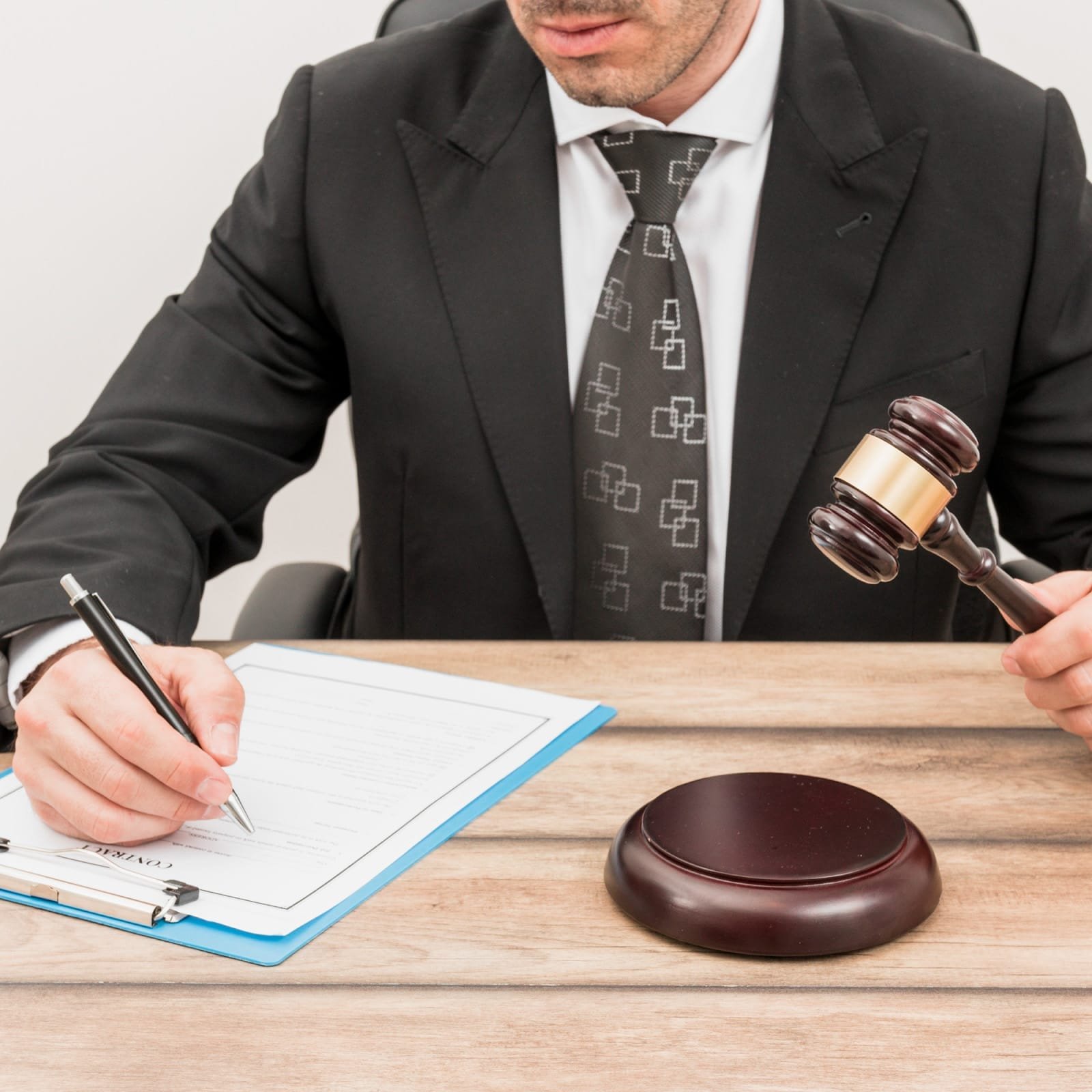
Legal representation in Singapore is a cornerstone of the legal system, ensuring fairness and justice across various legal proceedings.
Whether dealing with criminal, civil, or corporate matters, having skilled legal counsel is essential to protect your rights and achieve equitable outcomes.
As we delve into the specifics of legal representation within Singapore, including the availability of legal aid and different support schemes, we highlight the critical role lawyers play in upholding the principles of justice and fairness in every case.
What Is A Legal Representation In Singapore?

In Singapore, legal representation refers to the professional services provided by a qualified lawyer to represent an individual or entity in legal matters. This encompasses a broad range of activities including advising clients, drafting legal documents, negotiating settlements, and appearing in Court.
The roles and responsibilities of legal representatives are strictly regulated under Singapore’s legal framework to ensure professionalism and adherence to ethical standards.
When faced with criminal charges, or if under investigation for a suspected crime, the role of legal representation becomes crucial. You or your lawyer have the right to make representations to the Prosecution.
These representations, which can be submitted either verbally or in writing, are pleas or arguments made in your defence, intended to influence the decision of whether to proceed with charges, amend them, or possibly drop them altogether.
If you’ve already been formally charged in Court, it’s imperative to submit written representations to the Prosecution as soon as possible.
Importantly, once you have admitted guilt and entered a plea, the window for making representations closes, as they must be made before any unconditional plea of guilt is entered. It’s worth noting that the contents of these representations are confidential and are not disclosed to the judge.
Legal aid plays a vital role in the legal system by providing assistance to those unable to afford legal services. The primary objective of legal aid is to ensure everyone has the opportunity to access justice, uphold their legal rights, and navigate the complexities of the justice system.
Why Is Legal Representation Important In Court?

Legal representation is fundamental in Court for numerous reasons, particularly in safeguarding the rights of individuals, especially during criminal proceedings where the consequences can be severe. Having a lawyer ensures that your rights are not only protected but actively defended throughout the legal process.
Protecting Individual Rights
In any legal proceedings, the stakes can be exceptionally high, especially in criminal cases where outcomes could range from fines to incarceration. Lawyers play a crucial role in ensuring that the rights of the accused are protected.
This includes the right to a fair trial, the right to silence, and the right to be presumed innocent until proven guilty. Legal representatives are trained to uphold these rights vigorously, offering a buffer against potential miscarriages of justice.
Navigating The Complexities Of The Legal System
The legal system in Singapore is complex and can be challenging to navigate for those who are not familiar with it. Lawyers are well-versed in the law and the nuances of legal processes and protocols.
They help their clients understand the proceedings, what is expected of them, and the implications of the legal documents they might encounter or need to sign.
Ensuring that legal protocols are followed can significantly affect the outcome of a case. Lawyers manage deadlines, file necessary paperwork, and handle other procedural details that could be daunting or confusing for laypersons.
Advocating And Arguing On Behalf Of Clients
Perhaps one of the most visible roles of lawyers in Court is presenting evidence, cross-examining witnesses, and making persuasive arguments before the judge and jury. These activities are vital as they directly influence the Court’s perception of the case and, ultimately, the verdict.
Lawyers use their skills to construct a coherent narrative from the evidence, challenge the opposing witnesses effectively, and argue legal points with the aim of achieving the best possible outcome for their clients.
What Does Representing Yourself Mean?

In Singapore, representing yourself in Court, often termed as acting as a litigant-in-person (LIP), involves handling your own Court proceedings and applications without the assistance of a lawyer.
As an LIP, you are responsible for the entire management of your case, which includes preparing for hearings, conducting your case in Court, and adhering strictly to all legal procedures and Court rules.
Responsibilities Of A Litigant-in-Person
When you choose to represent yourself, you must:
- Prepare your case thoroughly: This includes gathering evidence, preparing submissions, and understanding the legal issues involved.
- Adhere to Court procedures: You are required to comply with the same rules and standards that apply to lawyers, meaning that the Court will not modify its expectations or procedures to accommodate your non-professional status.
- Understand the law: Familiarise yourself with relevant laws, legal principles, and any defences that you might argue, ensuring you can competently argue your case.
Before deciding to represent yourself, it’s crucial to assess whether you can handle the legal procedures, devote sufficient time to prepare your case, and effectively present your arguments in Court. If unsure, it’s advisable to consult a lawyer to better understand your options.
How Does Legal Representation Work?

Securing legal representation in Singapore involves several steps, whether you are hiring a private lawyer or seeking legal aid.
The process begins with choosing a lawyer who is suited to your legal needs and circumstances. Once engaged, your lawyer will handle various aspects of your case depending on its nature.
Steps Involved In Hiring A Lawyer
- Initial consultation: This usually involves discussing your case with a lawyer, where you provide an honest account of the events, as any false information can have serious legal consequences.
- Legal requests and negotiations: Your lawyer might negotiate with the Prosecution or authorities on your behalf. This could include requests to withdraw charges, amend charges to less serious ones, or negotiate terms for a plea.
Role Of A Lawyer In Court Proceedings
- Advocacy: Lawyers advocate on your behalf in Court, presenting evidence, cross-examining witnesses, and arguing legal points.
- Compliance and negotiation: They ensure that all legal protocols are followed and negotiate with the opposing side to reach settlements or plea agreements.
- Legal strategy: Your lawyer will develop a strategy based on the strengths and weaknesses of your case, aiming to achieve the best possible outcome.
Engaging A Lawyer Vs. Self-Representation
While self-representation is an option, the complexities of legal procedures and the high stakes involved often make it beneficial to engage a lawyer. Lawyers bring expertise and experience in law that are crucial for effectively navigating the legal system and ensuring that your case is presented in the best possible light.
Legal Representation For Family Law And Other Legal Issues

Legal representation is vital across various areas of law, ensuring that all parties have fair access to justice and professional guidance
Areas such as family law, civil disputes, and corporate law particularly benefit from the expertise of skilled legal counsel, as these fields often involve complex legal principles and significant personal or financial stakes.
Family Justice Support Scheme (FJSS)
The Family Justice Support Scheme (FJSS) plays a crucial role in providing legal support to those involved in family law disputes. Aimed at low-income families, the scheme ensures that individuals have access to necessary legal advice and representation during such challenging times.
Eligibility For FJSS
You may qualify for aid under the FJSS if you meet the following criteria:
- You are a Singaporean or Permanent Resident who has marginally failed the Legal Aid Bureau (LAB) means test.
- You are a foreigner married to a Singaporean and have Singaporean child/children.
- Additionally, applicants must pass both means and merits tests set by the FJSS to determine eligibility. This ensures that aid is granted based on financial need and the likelihood of success in legal proceedings.
Services Provided By FJSS
The scheme offers comprehensive support for various family matters including:
- Divorce: Guidance through the legal process of dissolving a marriage, ensuring fair division of assets and proper care arrangements for children.
- Family Violence: Assistance in securing protection orders and navigating the legal steps necessary to ensure personal safety.
- Maintenance: Help in obtaining or enforcing maintenance orders, providing financial support for spouses or children.
- Child-Related Issues: Support in custody disputes, parenting plans, and other legal matters affecting the welfare of children.
Legal Aid Bureau (LAB)
The Legal Aid Bureau (LAB), operating under the Ministry of Law, is pivotal in providing legal aid services for civil matters to those in need in Singapore.
LAB extends its services to include legal advice and assistance in family law matters, such as divorce and custody, as well as probate issues and drafting legal documents like wills and deeds of separation.
Services Offered By LAB
LAB offers comprehensive legal aid covering a wide range of civil matters. These include:
- Family Law: Handling cases such as divorce, child custody, and probate.
- Employment Disputes: Assisting with issues related to employment contracts and workplace disputes.
- Civil Matters: Addressing various civil disputes, ensuring legal representation and advice are accessible to those who need it.
Eligibility And Application Process
To qualify for legal aid from the LAB, applicants must pass both a means test, which assesses financial capability, and a merits test, which evaluates the likelihood of success in the legal proceedings. The following are eligible for this scheme:
- Singapore Citizens and Permanent Residents: Directly eligible for legal aid.
- Citizens or Residents of Contracting States: Specifically for cases under the Hague Convention on the Civil Aspects of International Child Abduction.
Applicants might be required to make a financial contribution towards the costs of their legal services, which can be up to S$1,650, although more complex cases may incur higher costs.
Primary Justice Project (PJP)
The Primary Justice Project, managed by the Community Justice Centre, aims to provide affordable legal assistance, primarily through mediation, to individuals with modest financial means.
This project is designed to help parties settle disputes amicably before escalating to Court actions, thereby saving both time and resources.
Scope Of PJP Services
The PJP covers:
- Civil Claims: For claims below $60,000.
- Family Law: Particularly divorce matters where most ancillary issues are nearing settlement.
- Miscellaneous Disputes: Including harassment cases and neighbourhood disputes.
Cost And Legal Aid Service
Legal aid under the PJP is provided at a fixed fee of S$1,800 (excluding GST and other disbursements). This fee covers up to six hours of legal consultation and facilitation for dispute settlement.
This approach ensures that legal assistance remains accessible and affordable, preventing minor disputes from developing into more significant legal battles.
Conclusion About The Legal Representation In Court
Legal representation in Court plays a pivotal role in ensuring that justice is served fairly and equitably within Singapore’s legal system. Having a lawyer to navigate the intricacies of legal proceedings is crucial, not only in safeguarding the rights of individuals but also in steering complex legal challenges towards just outcomes.
The risks associated with self-representation are significant, as the lack of legal expertise can lead to unfavourable consequences, underlining the necessity of professional legal counsel.
The importance of legal representation cannot be overstated, especially when faced with the potential life-altering impacts of legal issues.
For those concerned about the affordability of legal services, Singapore offers various legal aid options ensuring that access to justice is not limited by financial constraints.
If you find yourself in need of legal advice or representation, do not hesitate to seek the professional services of a divorce lawyer in Singapore or criminal lawyer in Singapore.
Contact Tembusu Law for a free consultation to ensure your rights are protected and your case is handled with the diligence it deserves.
Frequently Asked Questions About The Legal Representation In Court
Can I Change My Legal Representative During Court Proceedings?
Yes, you can change your legal representative during Court proceedings if you feel your lawyer is not adequately handling your case or if there is a breakdown in communication.
However, switching lawyers may cause delays in the proceedings, as the new lawyer will need time to review your case. It is important to carefully consider the timing and impact of such a change, especially if the case is in an advanced stage.
How Does Legal Representation Help With Plea Negotiations?
Legal representation plays a critical role in plea negotiations by engaging with the prosecution to potentially reduce the charges or negotiate a more lenient sentence.
Your lawyer will assess the evidence against you and provide strategic advice on whether accepting a plea deal is in your best interest. With their expertise, they ensure that any plea agreement reached is fair and considers your circumstances and the legal risks involved.
Is Legal Representation Mandatory In All Court Cases?
No, legal representation is not mandatory in all Court cases, and individuals have the right to represent themselves. However, it is highly recommended to have a lawyer, especially in complex legal matters, to navigate the procedures and ensure your rights are protected.
Self-representation can be risky, as it requires a strong understanding of legal rules, which a qualified lawyer is better equipped to handle.
What Should I Expect From My Legal Representative During A Trial?
During a trial, your legal representative will advocate on your behalf, presenting evidence, cross-examining witnesses, and making legal arguments to support your case. They will guide you through every stage of the trial, ensuring that legal protocols are followed and that your rights are upheld.
You can also expect your lawyer to explain the legal proceedings and advise you on important decisions, such as whether to testify or settle out of Court.